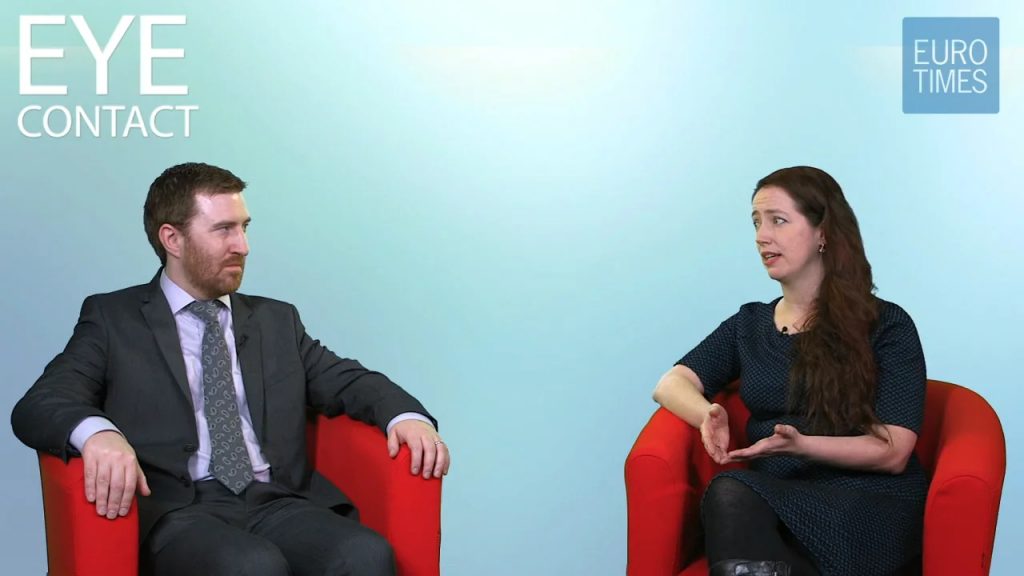To err is human - get used to it
All ophthalmologists will have bad days and failures, but that is part of the learning curve

Colin Kerr
Published: Monday, April 1, 2019
 We all have our bad days. Some days are worse than others.
I am not an ophthalmologist, but I can confidently say that my failures on a daily basis outweigh my successes.
Ophthalmologists pride themselves on their attention to detail and on their ability to deliver the best results to their patients.
Do they ever go home and say to their partners or friends: "Today, I failed."
I don't think they do, as failure is usually not an option for high-achieving, highly motivated medical professionals.
That brings me to a recent article by the musician and writer Tracey Thorne who wrote on failure in the New Statesman magazine.
".......failed job interviews, infertility, divorce, illness. Human frailty, vulnerability, and, ultimately, that one great failure none of us can avoid, mortality – they glue us together, or should do," said Thorne.
I immediately recalled Thorne's article when I listened to a EuroTimes Eye Contact interview with Dr Sorcha Ní Dhubhghaill, who discussed what trainees should look for in a mentor and what mentors can offer in that role.
Dr Ní Dhubhghaill is ideally placed to discuss this role having made the transition from trainee to her current position as Corneal Surgeon at Netherlands Institute for Innovative Ocular Surgery (NIIOS) and Antwerp University Hospital.
"There is a saying 'The master has failed more than the trainee has tried'," said Dr Ní Dhubhghaill. "When you see this amazing surgeon doing amazing surgery, so quickly and so elegeantly, you may wonder 'how will I ever get there'.
"You have to remember that the surgeon you are observing did not come out of medical school doing that. They have had bad days, they've had failures."
Dr Ní Dhubhghaill said that part of her job as a mentor is to try and convince young surgeons not to quit out of the surgical programme.
"Every young surgeon, when they have their first complication, sits at home, loses sleep and wonders 'should I have let somebody else do this procedure?' You need, as a mentor, to help them over these roadblocks because you have to remember that someone helped you over your roadblocks," she said.
Dr Ní Dhubhghaill says she was very lucky to have great mentors including Peter Barry and Marie-José Tassignon. "They both helped me over these hurdles when I didn't want to continue, and now I love it."
In one of his last works, Worstward Ho (1983), the great Irish writer and Nobel laureate Samuel Beckett wrote:
“All of old. Nothing else ever. Ever tried. Ever failed. No matter. Try again. Fail again. Fail better.”
Beckett’s work is often misinterpreted, but it is possible to argue that what he is suggesting here is that there is no such thing as absolute success or failure.
And that is why ophthalmologists should always remember that to err is human.
We all have our bad days. Some days are worse than others.
I am not an ophthalmologist, but I can confidently say that my failures on a daily basis outweigh my successes.
Ophthalmologists pride themselves on their attention to detail and on their ability to deliver the best results to their patients.
Do they ever go home and say to their partners or friends: "Today, I failed."
I don't think they do, as failure is usually not an option for high-achieving, highly motivated medical professionals.
That brings me to a recent article by the musician and writer Tracey Thorne who wrote on failure in the New Statesman magazine.
".......failed job interviews, infertility, divorce, illness. Human frailty, vulnerability, and, ultimately, that one great failure none of us can avoid, mortality – they glue us together, or should do," said Thorne.
I immediately recalled Thorne's article when I listened to a EuroTimes Eye Contact interview with Dr Sorcha Ní Dhubhghaill, who discussed what trainees should look for in a mentor and what mentors can offer in that role.
Dr Ní Dhubhghaill is ideally placed to discuss this role having made the transition from trainee to her current position as Corneal Surgeon at Netherlands Institute for Innovative Ocular Surgery (NIIOS) and Antwerp University Hospital.
"There is a saying 'The master has failed more than the trainee has tried'," said Dr Ní Dhubhghaill. "When you see this amazing surgeon doing amazing surgery, so quickly and so elegeantly, you may wonder 'how will I ever get there'.
"You have to remember that the surgeon you are observing did not come out of medical school doing that. They have had bad days, they've had failures."
Dr Ní Dhubhghaill said that part of her job as a mentor is to try and convince young surgeons not to quit out of the surgical programme.
"Every young surgeon, when they have their first complication, sits at home, loses sleep and wonders 'should I have let somebody else do this procedure?' You need, as a mentor, to help them over these roadblocks because you have to remember that someone helped you over your roadblocks," she said.
Dr Ní Dhubhghaill says she was very lucky to have great mentors including Peter Barry and Marie-José Tassignon. "They both helped me over these hurdles when I didn't want to continue, and now I love it."
In one of his last works, Worstward Ho (1983), the great Irish writer and Nobel laureate Samuel Beckett wrote:
“All of old. Nothing else ever. Ever tried. Ever failed. No matter. Try again. Fail again. Fail better.”
Beckett’s work is often misinterpreted, but it is possible to argue that what he is suggesting here is that there is no such thing as absolute success or failure.
And that is why ophthalmologists should always remember that to err is human.